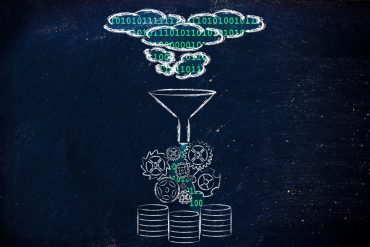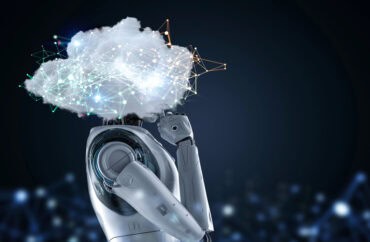
In this week’s real-time analytics news: The Apache Software Foundation (ASF) announced Apache Cassandra 5.0, which introduces new features and improvements that enhance its capabilities for modern, data-intensive applications.
Keeping pace with news and developments in the real-time analytics and AI market can be a daunting task. Fortunately, we have you covered with a summary of the items our staff comes across each week. And if you prefer it in your inbox, sign up here!
The Apache Software Foundation (ASF) announced Apache Cassandra 5.0. The release introduces new features and improvements that enhance its capabilities for modern, data-intensive applications. Key highlights include Storage Attached Indexes (SAI), Trie Memtables and Trie SSTables, Unified Compaction Strategy (UCS), Vector Search, JDK 17 support, Dynamic Data Masking, and more.
Other real-time analytics news in brief
Aerospike announced the general availability of Aerospike Database 7.2, which brings key operational enhancements designed to improve performance and lower costs. Key enhancements include Active Rack Configuration, which optimizes multi-zone deployments by designating an active zone for write operations, reducing latency and cross-AZ egress costs; and XDR Version Shipping Controls, which are new policies that allow more flexible backup and data replication strategies.
Alation launched its AI Governance solution to help organizations realize value from their data and AI initiatives. The solution ensures that AI models are developed using secure, compliant, and well-documented data. With capabilities such as lineage for AI auditability, AI documentation, data discovery and custom tagging, and data quality flags, organizations can confidently accelerate AI development, mitigate risks, and optimize their AI investments for business impact.
Cloudera launched Cloudera AI Inference powered by NVIDIA NIM microservices, which is part of the NVIDIA AI Enterprise platform. As one of the industry’s first AI inference services to provide embedded NIM microservice capability, Cloudera AI Inference uniquely streamlines the deployment and management of large-scale AI models, allowing enterprises to harness their data’s true potential to advance GenAI from pilot phases to full production.
In other Cloudera news, the company announced an integration with Snowflake to bring enterprises an open, unified hybrid data lakehouse powered by Apache Iceberg. Now, enterprises can leverage the combination of Cloudera and Snowflake—two best-of-breed tools for ingestion, processing, and consumption of data—for a single source of truth across all data, analytics, and AI workloads.
CrateDB announced a new partnership with Axcess.io, an AWS Advanced Consulting Partner. The collaboration aims to accelerate data-driven innovation, helping enterprises transition to modern cloud architectures while enhancing their real-time data processing capabilities. Additionally, the partnership with CrateDB will further bolster Axcess.io’s offerings by introducing CrateDB’s real-time analytics database across various industries, particularly for IoT and data-heavy applications.
Databricks announced the Public Preview of Databricks Apps. The solution enables developers to build apps natively in Databricks with popular frameworks, such as Dash, Shiny, Gradio, Streamlit, and Flask. One of the key advantages of Databricks Apps is the ability to create data applications tailored for non-technical users using code instead of SQL. Moreover, Databricks Apps can incorporate AI components, enabling developers to call specific AI models when they need more flexibility.
dbt Labs announced new features and enhancements to dbt Cloud, cementing the platform as the data control plane for enterprise analytics. The new innovations support users across various stages of the analytics development lifecycle by providing unprecedented cross-platform flexibility, empowering more people to contribute to the analytics workflow while accelerating speed and productivity, and improving organizational trust in data. This includes the launch of dbt Copilot, an AI engine embedded across dbt Cloud to bolster productivity while improving data quality.
In other dbt Labs news, the company announced that it is teaming up with Salesforce to unite its Data Cloud AI, automation, and analytics solutions with dbt Labs’ expertise in data transformation and metrics management. Specifically, Salesforce Data Cloud, Tableau, and Agentforce customers will gain access to dbt Labs’ data transformation pipeline. dbt Labs will also provide an independent metrics layer, enabling Tableau and Salesforce customers to define, manage, and standardize key business metrics across all platforms.
Domino Data Lab announced Domino Governance, a new solution for mitigating AI’s risks while accelerating its rewards. Its approach automatically orchestrates the fully governed model lifecycle. Domino Governance embeds AI governance within the data science workflow, putting policies, evidence, and approvals in one place and on schedule for enterprises to innovate quickly and safely.
Event Store announced enhancements to Event Store Cloud to streamline management, improve ease of use, and increase time-to-value. Customers can now stand up an instance of Event Store Cloud in minutes with automated provisioning and easily control spend by resizing clusters dynamically to meet their application needs. With Event Store Cloud, users can feed real-time, business-critical data in fine-grained streams from origination to downstream use cases such as data analytics, microservices, and AI applications.
H2O.ai announced a collaboration with AI Verify to ensure the safe deployment of AI. As a part of the collaboration, H2O has launched an initiative alongside the foundation to provide clients the ability to test and govern their AI systems using H2O’s platform. Additionally, H2O has agreed to contribute benchmarks and code to AI Verify’s open-source Project Moonshot toolkit for Large Language Modeling (LLM) application testing and provide support for tests recommended by AI Verify on its Machine Learning (ML) and LLM Ops platform.
Precisely announced the Data Graph API, a new addition to the Data Enrichment service within the Precisely Data Integrity Suite. Supported by the PreciselyID, the Data Graph API reduces complexity, ensures consistency, and speeds up the data enrichment process, accelerating time-to-value. Powered by GraphQL technology, the Data Graph API simplifies data enrichment by enabling users to specify their data needs in a single query. The API filters and organizes the data before delivery, ensuring that businesses receive only the most relevant information according to their needs.
SAP announced new capabilities that complement and extend Joule, including collaborative AI agents imbued with custom skills to complete complex cross-disciplinary tasks. Other innovations include the SAP Knowledge Graph, a next-generation solution poised to help developers unlock the full value of SAP data by connecting it with rich business context, and new tools to ensure developers can continue driving Business AI innovation.
Smartsheet announced it is partnering with AWS to launch a new connector that synchronizes data from Smartsheet into Amazon Q Business, a generative AI-powered assistant. The connector will enable Amazon Q Business customers to query their intelligent assistant for information about their projects, programs, and processes managed in Smartsheet, offering a unified search experience across their knowledge base so employees can make data-driven decisions and operate at peak.
Snorkel AI announced new capabilities in Snorkel Flow to accelerate the specialization of AI/ML models in the enterprise. These capabilities include GenAI evaluation tools for use-case-specific benchmarks, streamlined LLM fine-tuning workflows, and advanced named entity recognition (NER) for PDFs—all of which strengthen Snorkel Flow’s position as a platform capable of supporting the entire AI data development lifecycle.
Teradata announced new capabilities for VantageCloud Lake and ClearScape Analytics that make it easier for enterprises to implement generative AI (GenAI) use cases. By adding bring-your-own LLM (BYO-LLM), Teradata customers can take advantage of small or mid-sized open LLMs, including domain-specific models. Additionally, Teradata’s new features bring the LLMs to the data (versus the other way around) so that organizations can also minimize expensive data movement and maximize security, privacy, and trust.
If your company has real-time analytics news, send your announcements to ssalamone@rtinsights.com.
In case you missed it, here are our most recent previous weekly real-time analytics news roundups:
- Real-time Analytics News for the Week Ending October 5
- Real-time Analytics News for the Week Ending September 28
- Real-time Analytics News for the Week Ending September 21
- Real-time Analytics News for the Week Ending September 14
- Real-time Analytics News for the Week Ending August 31
- Real-time Analytics News for the Week Ending August 24
- Real-time Analytics News for the Week Ending August 17
- Real-time Analytics News for the Week Ending August 10
- Real-time Analytics News for the Week Ending August 3





























